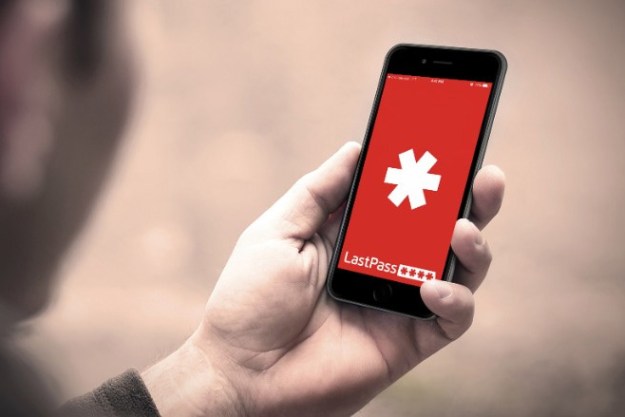
We do just about everything online today, and in the digital age, having good passwords for your accounts isn’t sufficient anymore — and if you’re still using the same login credentials for multiple accounts, then it’s definitely time to upgrade your security setup. An easy way to do that is with a password manager that makes it simple to create and organize secure access codes for all of your accounts, but even that might not be enough to guard your sensitive personal and financial information from prying eyes. Instead, we recommend 1Password, a unique account manager that does more than just organize your logins. It also takes online security to a whole new level by letting you keep all of your accounts completely separate.
Your typical password manager can generate and organize unique credentials for your accounts (sort of like a digital key ring), but 1Password takes things a step further. With 1Password, you get not only a unique, strong passcode for every account, but the app also generates a unique email address as well. When signing up for a new account somewhere or updating some you already have, you simply create a new 1Password-generated email string and password, set up two-factor authentication, and use this new “sock” email and passcode to register. Your real information is kept private, and access codes are securely backed up in your 1Password account, for which you have a master password — the only one you need to remember.
Keeping your important online accounts separated from each other in this way effectively seals them off in the unlikely event that any of them are compromised, limiting any potential damage. The intruder won’t be able to use your 1Password-generated email and password to access any of your other credentials, for example — think of it as closing off a flooded compartment of a ship to prevent the rest of the compartments from taking on water and sinking the boat. However, since 1Password lets you set up two-factor authentication for your accounts (i.e. you will be notified of any attempted logins and can either authorize or block them), it’s highly unlikely that even one of them will be compromised in the first place.
No single security method alone is perfect, but by layering multiple protocols together like this, 1Password does a pretty bang-up job of keeping your personal information locked down and away from prying eyes. In fact, 1Password issued a challenge to hackers a few years ago, offering a $100,000 bounty to anybody who could successfully crack its system. So far, nobody has. Furthermore, only you have access to your data thanks to your Secret Key which is kept only on your device — 1Password does not handle your accounts’ login information, and it’s not stored on servers controlled by someone else — and it’s all kept secure with AES 256-bit encryption.
Better still, your 1Password account itself (and the aforementioned master passcode) uses the Secure Remote Password protocol, meaning that your credentials aren’t even sent across the open internet when logging into 1Password. All traffic between you and 1Password servers is fully encrypted, as well, as is all metadata such as image tags and URLs. Finally, your passwords and account information aren’t stored, used, or shared by 1Password in any way, so you can rest easy knowing that no unwanted spectators — not even the folks at 1Password themselves — are laying eyes on your sensitive information. You can install 1Password on Windows, MacOS, Android, iOS, Linux, and Chrome OS computers and devices, and there are also 1Password browser extensions available for Chrome, Brave, Microsoft Edge, and Firefox.
The 1Password subscription can be had for as little as $3 per month when you sign up for the annual Personal plan and pay $36 up-front for a year’s worth of service, but new subscribers can try the service with a 14-day free 1Password trial. The Family plan upgrade gives you coverage for up to five users for $5 per month ($60 billed annually). Need protection for even more users? You can choose from three different business plans, which start at $20 per month for 10 users and can be scaled up from there. The $20 monthly Teams Starter Pack plan is also eligible for the 14-day free 1Password trial as well, so there’s no risk in signing up now and giving it a spin.
Editors' Recommendations
- These are the PC apps you’re still using — but probably shouldn’t be
- Hackers are using this incredibly sneaky trick to hide malware
- No, 1Password wasn’t hacked – here’s what really happened
- If you use this free password manager, your passwords might be at risk
- Using LastPass? You need to switch urgently, says security firm


